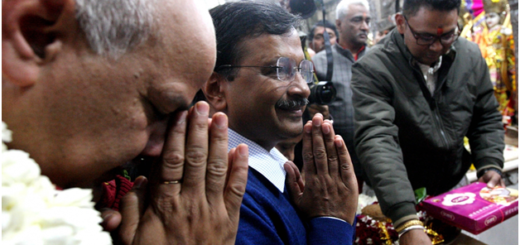Letter to Editor, from Jacob Macwan: Why not organized religion itself?

Jacob Macwan
Note: Welcome Macwan with your reaction. We too always held that organized religions are to be discouraged, since their beneficiaries are the organizers themselves. Of course different views are welcome to learn from all. It is for that CCV is an open forum: to learn from all. JK
Dr. James Kottoor prefixed the title of my earlier article: "Abolish sacraments to eradicate clericalism" (Almayasabdam 5 – 6 – 2019) with "Why not priesthood itself", to which I readily agreed.
I started planning to write my next article in support of that, when on reflection, I got the idea to take it a step further and write on "Why not religion itself". I mean organized religion and a tendency to make a public exhibition of its practice and to decry every other religion except one's own.
I firmly believe that religion is in essence a way of life and morality, consistent with a belief in the existence of a God who is a supernatural power, creator and director of the cosmos and all the living beings within it promoting the concept of VASUDHAIVA kUTUMBAKAM (universal family) and that every person has a freedom of belief and conviction of this maxim, which is purely personal and it need not be labeled by different names and displayed on one's person like wearing a badge or a lapel pin, including specific religious articles or clothing generally identified with this or that religion, such as a cross, a rosary, skull cap, Rudraksh malas, saffron robes, big tilak, turban, kirpan, nakedness of Digambar sect of sadhus or nanga babas, Hijab, burqas, etc.
Guided by the underlying principle of secularism, the Indian constitution has granted to every citizen a right to profess, practice and to propagate any religion of his choice, subject to public order, morality and health. However there are some religious practices being performed in public, which may not be considered essential to faith but are causing great inconvenience to the general public, particularly to senior citizens, and need to be restricted.
These are taking over of roads and public spaces for Durga Puja, Ganapati visarjan processions, acompanied by loud speakers blaring film songs, Friday public namaz service and Tajiya processions to name a few.
Not to be left behind even the Christian community has lately started Eucharistic processions and processions and rosary recitals in honour of mother Mary. Jesus Christ had consistently taken a stand against public display of piety and religiosity. ( Matt 6.2-4,,6.5, 6.16-18, Lk18.9-14 )
In view of individual freedom for the choice of one's religion or no religion, certain curbs on public display of religion and some practices are desirable but it may not be enforced by the government on account of vote bank politics, but mature and wise persons can initiate the changes voluntarily.
Firstly, insistence on observance of the same religion between spouses and between parents and their children should be done away with.
Public display of religious rituals and gatherings including mass prayers, worship of any deities and celebrating religious festivals need to be discouraged.
Subsidies for religious pilgrimages such as for Hajj, Char Dham Yatra, vaishno Devi,Tirupati, Holy Land, Fatima, Lourdes, Vatican, etc.should be stopped.
All religious instructions, rituals and practices should be banned in educational institutions and instead value education (moral and ethical behavioural principles) and study of national constitution be introduced.
In today's violence-prone world, a large number of nations both small and large have found it wise to group together for mutual safety to discourage aggression and violent confrontation thinking there is safety in numbers.
So various nations with common interests and in a spirit of accomodative co-operation have come together to form groups such as BRICS, ASEAN, BIMSTEC,the Eurozone, NATO, and the biggest of them – The United Nations Organization (UNO).
So also organised religions need to consider an attempt at syncretism and formulate a comity of religions to avoid confrontation, clashes and chaotic bloodshed and genocide/mutual annihilation by terrorist attacks as recently reported in New Zealand and Sri Lanka.
"If no religious collaboration, goodbye to organized religions!" Almayasabdam editorial (28.8.2017) draws our attention to fast-changing demographic situation in Europe.
















